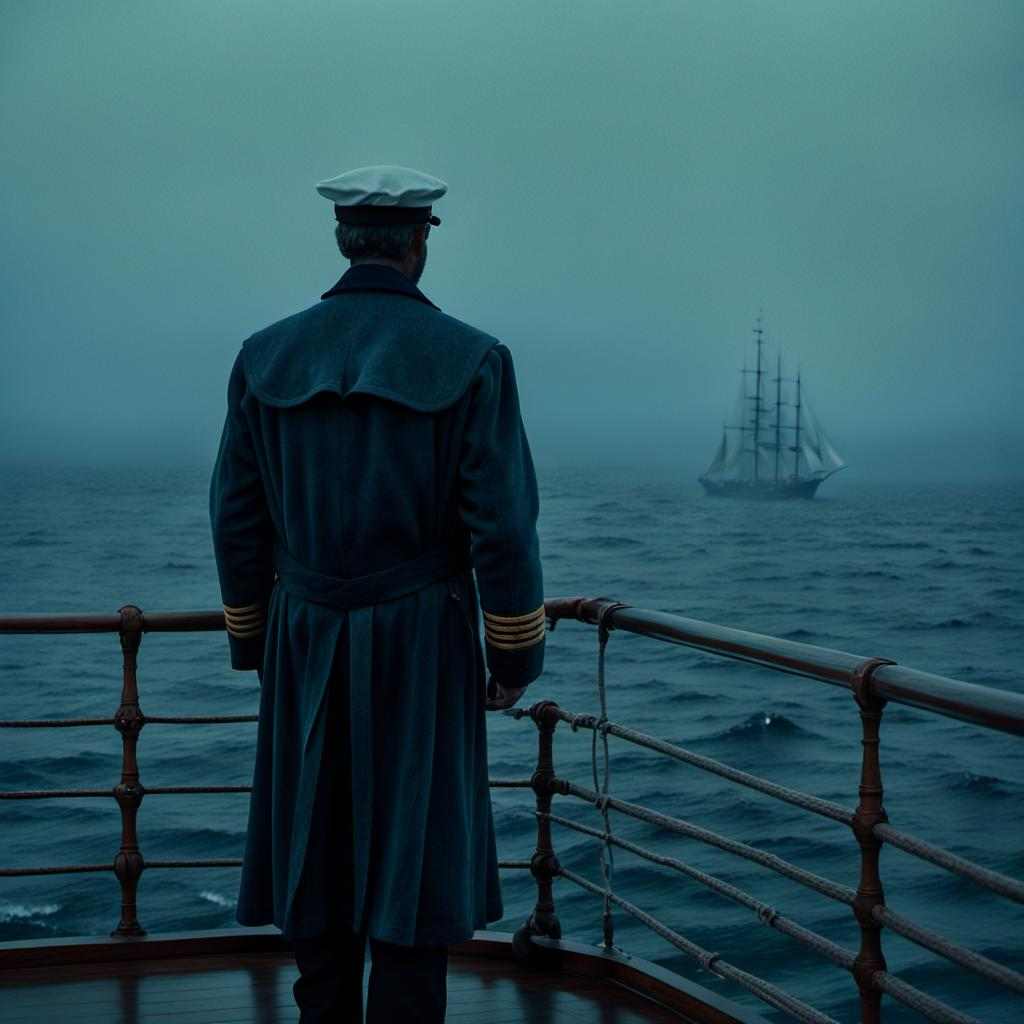4 Poems by John Masefield
1878 - 1967
John Masefield Biography
John Masefield, born on June 1, 1878, in Ledbury, Herefordshire, England, emerged as one of the most significant and beloved poets of the 20th century. His life was a tapestry of adventure, literary achievement, and public service that spanned nearly nine decades until his death on May 12, 1967.
Masefield's early years were marked by tragedy and upheaval. Orphaned at a young age, he was sent to live with an aunt who provided for his education but showed little affection. This lack of nurturing would later influence his writing, imbuing it with a sense of longing and a deep appreciation for the beauty and harshness of the natural world.
At the age of 13, Masefield's life took a dramatic turn when he began his seafaring career as a cadet aboard the HMS Conway. This experience would prove formative, instilling in him a lifelong love of the sea that would permeate much of his later work. His time at sea was cut short after only a few years due to illness, but the impact of those maritime adventures would resonate throughout his literary career.
Upon returning to England, Masefield worked a series of odd jobs while nurturing his passion for literature. He voraciously consumed the works of Chaucer, Keats, and Shelley, among others, laying the foundation for his own poetic voice. It was during this period that he began to write in earnest, publishing his first collection of poems, "Salt-Water Ballads," in 1902.
Masefield's breakthrough came with the publication of "The Everlasting Mercy" in 1911. This long narrative poem, which tells the story of a rural sinner's redemption, shocked and captivated readers with its use of colloquial language and frank depiction of working-class life. It marked a departure from the refined aestheticism of the late Victorian era and helped usher in a new, more direct style of poetry that would characterize much of 20th-century verse.
The poet's magnum opus, "Dauber," appeared in 1913. This semi-autobiographical work, drawing on Masefield's own experiences at sea, tells the story of a ship's painter struggling to capture the beauty and terror of life aboard a sailing vessel. "Dauber" is notable for its vivid imagery, technical mastery, and profound exploration of the artist's role in society.
Masefield's poetry is characterized by its musicality, narrative drive, and deep engagement with the natural world. He had a particular gift for capturing the rhythms of everyday speech and imbuing them with lyrical beauty. His most famous poem, "Sea Fever," with its opening line "I must go down to the seas again," has become an enduring cultural touchstone, embodying the restless spirit of adventure that defined much of Masefield's life and work.
While primarily known for his poetry, Masefield was a prolific and versatile writer who produced novels, plays, essays, and children's books. His novel "The Bird of Dawning" (1933) is considered a classic of maritime literature, while his children's book "The Midnight Folk" (1927) continues to enchant readers with its blend of fantasy and folklore.
Masefield's literary achievements were recognized with numerous honors throughout his lifetime. In 1930, he was appointed Poet Laureate of the United Kingdom, a position he held until his death in 1967. During his tenure, he brought a new vitality to the role, writing poems for national occasions that combined formal elegance with genuine emotion.
Beyond his literary pursuits, Masefield was deeply committed to public service. During World War I, he served as a hospital orderly and later worked for British naval intelligence. In the interwar years, he was a tireless advocate for the arts, serving on numerous committees and organizations dedicated to promoting literature and culture.
Masefield's personal life was marked by both joy and tragedy. His marriage to Constance de la Cherois Crommelin in 1903 was a source of great happiness and stability. However, the couple suffered the loss of their son in World War II, a devastating blow that would inform some of Masefield's later, more introspective work.
In his later years, Masefield continued to write and remained an active presence in British literary circles. His autobiography, "So Long to Learn" (1952), provides valuable insights into his development as a writer and his views on the craft of poetry.
John Masefield's legacy is that of a poet who bridged the gap between traditional and modern verse, who celebrated the beauty of the natural world and the dignity of ordinary lives. His work continues to be studied and admired for its technical skill, emotional depth, and enduring appeal. Masefield's journey from sea cadet to Poet Laureate embodies the transformative power of literature and the enduring allure of the poet's vocation.
This text was generated by AI and is for reference only. Learn more
Username Information
No username is open
Unique usernames are free to use, but donations are always appreciated.
Quick Links
© 2024-2025 R.I.Chalmers (V2Melody).

All music on this site by R.I.Chalmers (V2Melody) is licensed under a Creative Commons Attribution-NonCommercial 4.0 International License.
Attribution Requirement:
When using this music, you must give appropriate credit by including the following statement (or equivalent) wherever the music is used or credited:
“Music by R.I.Chalmers (V2Melody) – https://v2melody.com”
Support My Work:
If you enjoy this music and would like to support future creations, donations are always welcome but never required.
Donate




